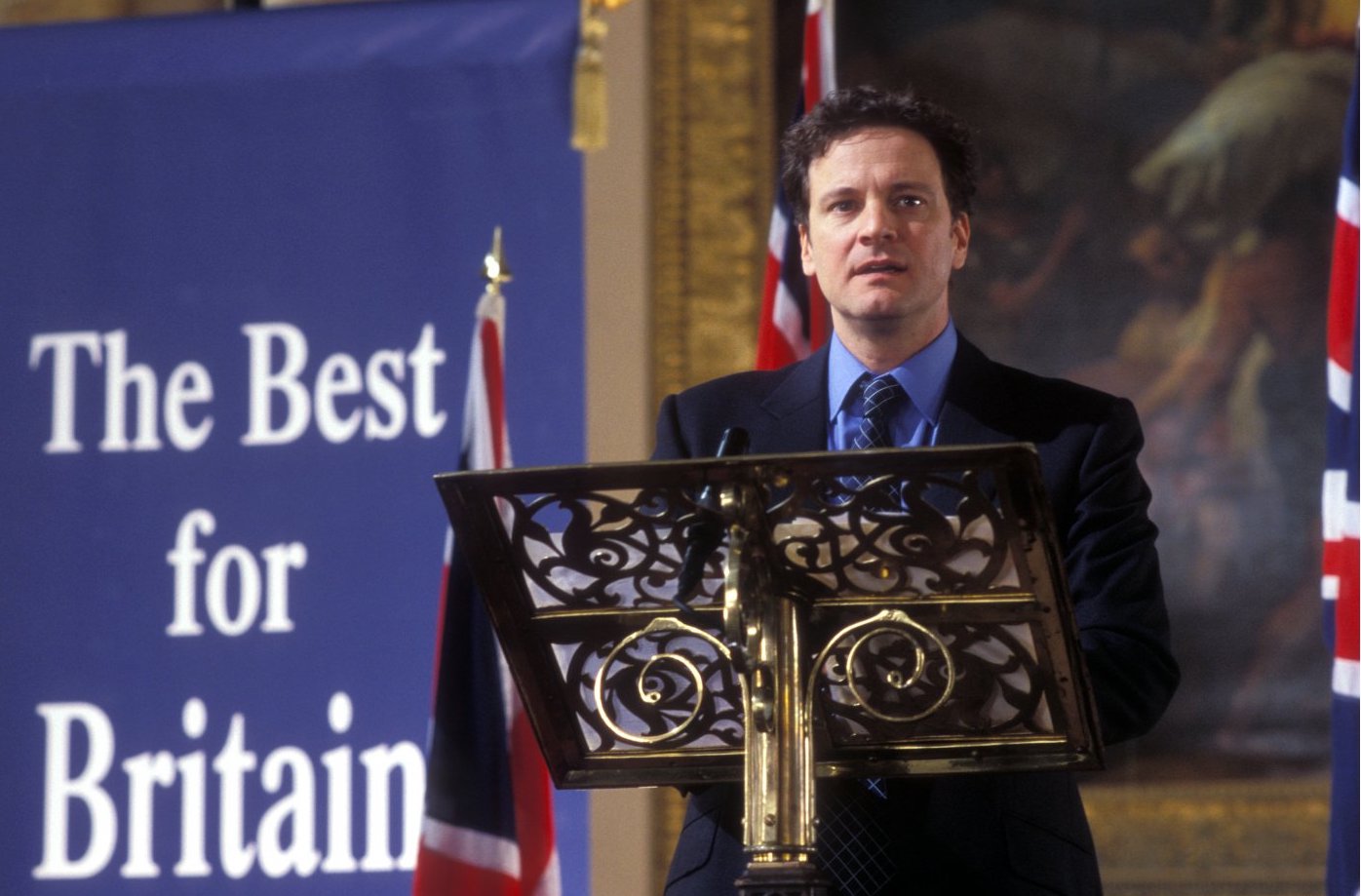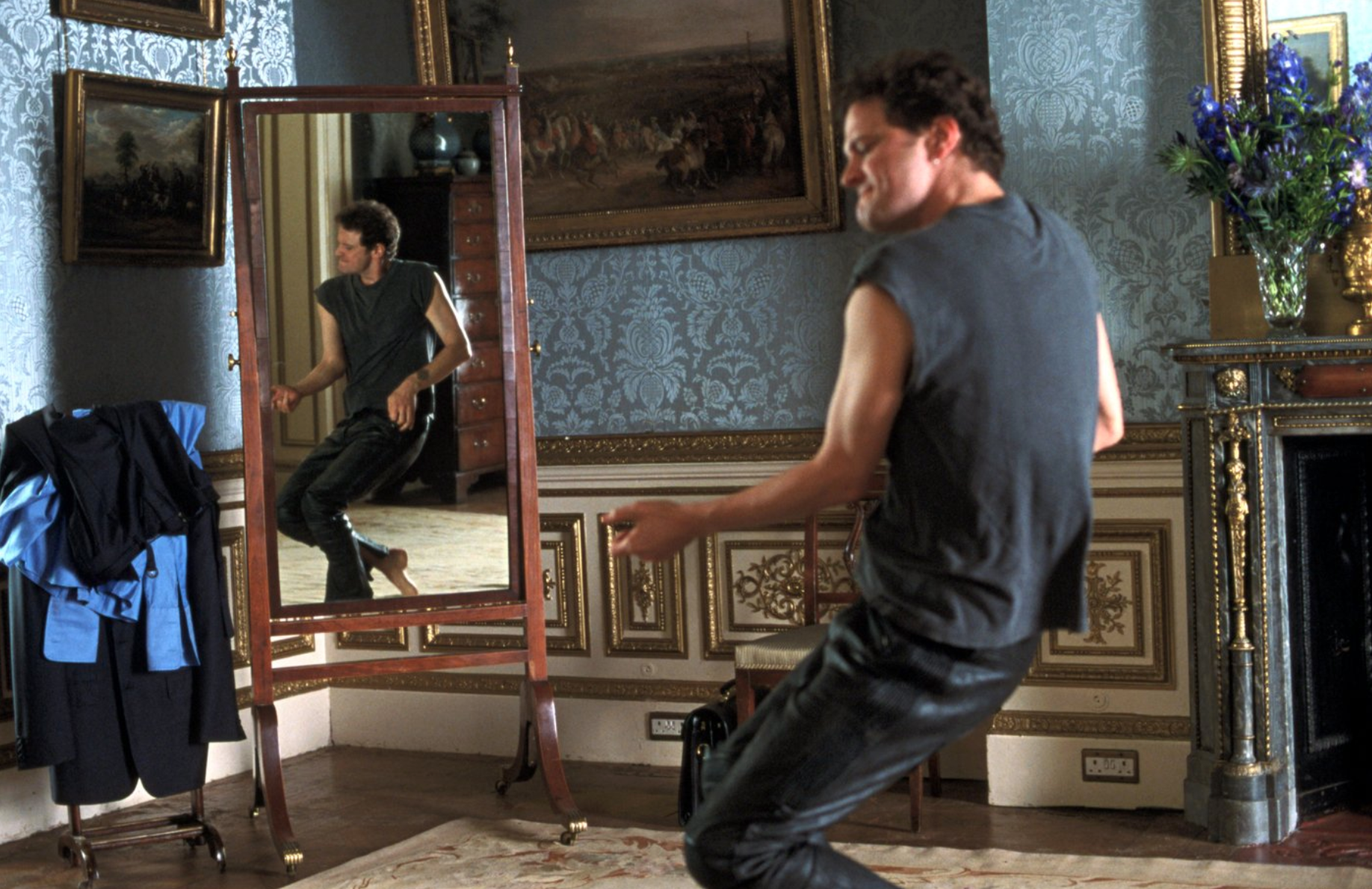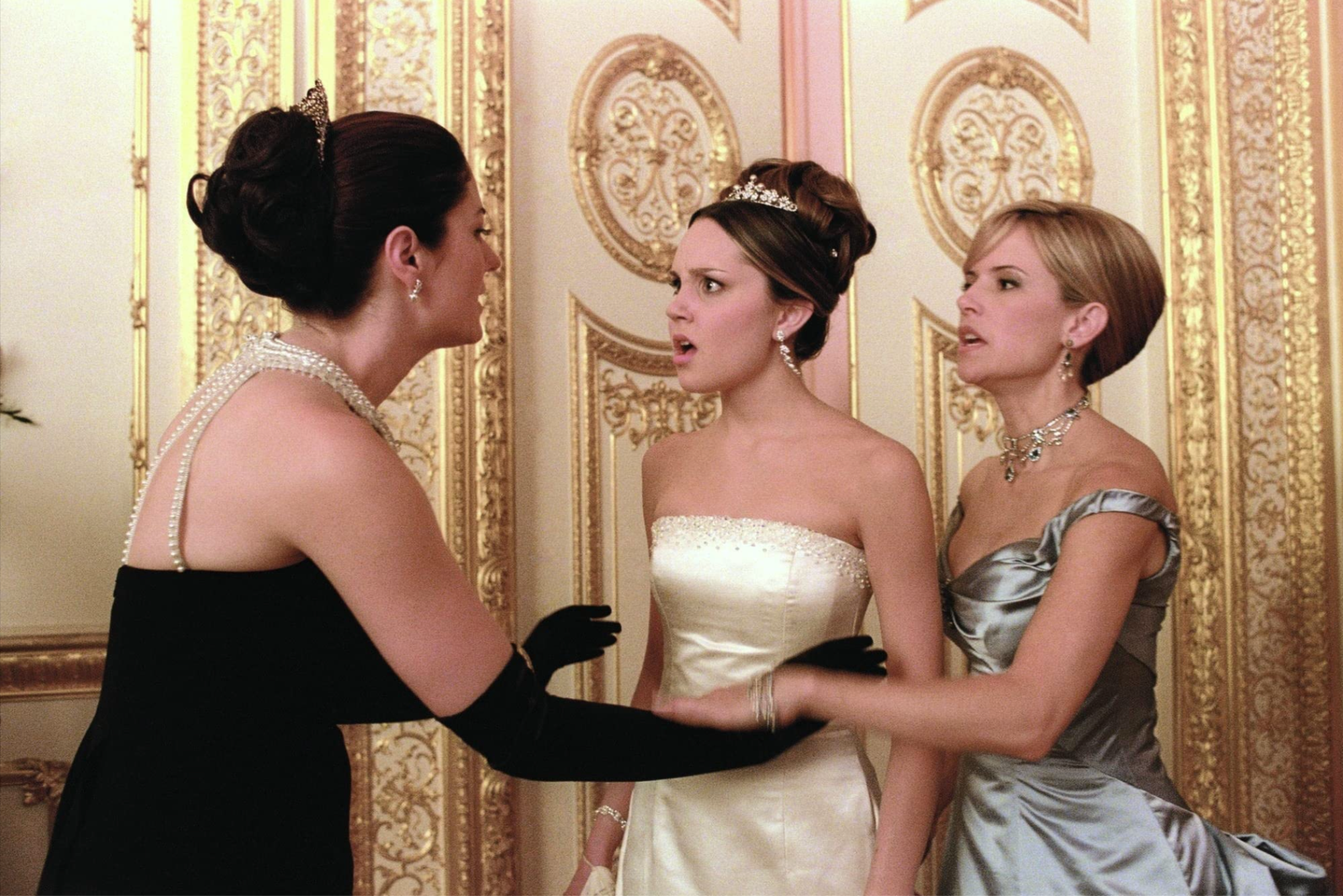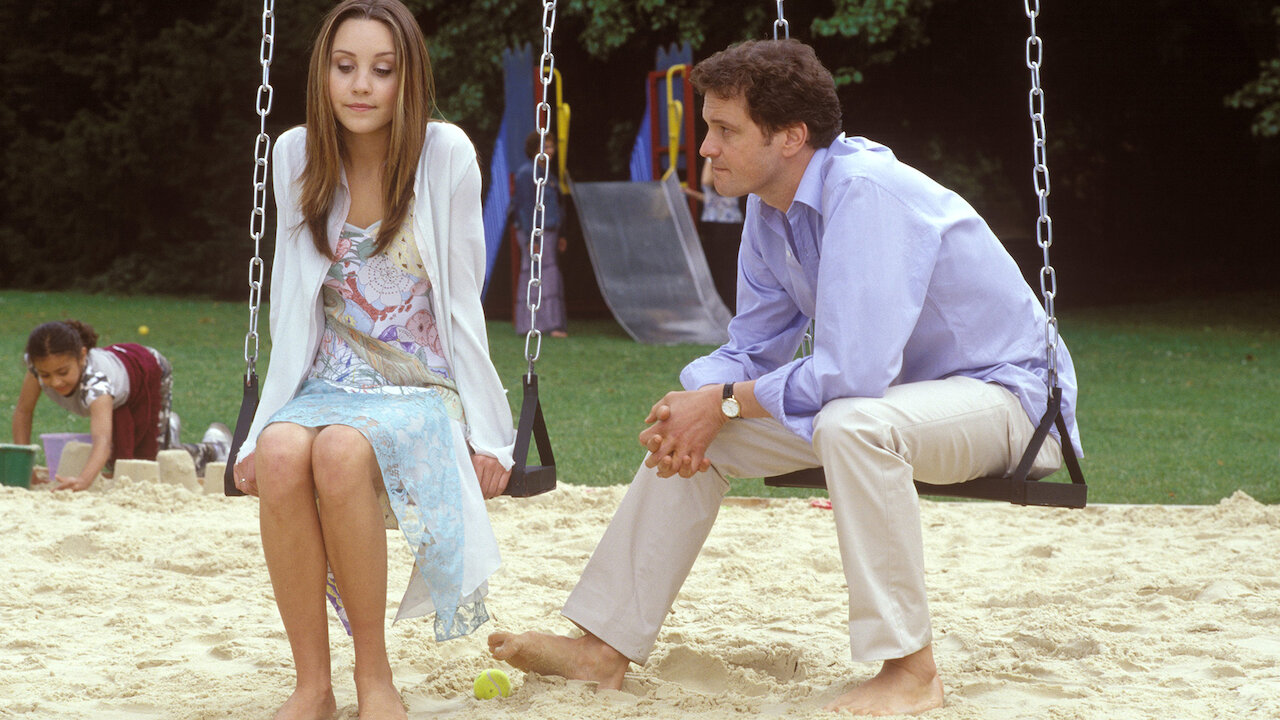You wouldn’t think, if you were looking for an act of political rebellion, to turn to an Amanda Bynes teen chick flick from 2003, and yet Warner Brothers did. With the movie coming out just weeks after the controversial invasion of Iraq by a coalition of US and UK forces, amongst others, the studio feared the peace sign being flashed by the American-flag-vest-wearing lead; flanked by two British soldiers on the poster, it could be construed as either a pro or anti-war message. And so, they jankily photoshopped Amanda’s arm down by her side for the rest of the marketing. “Some people think, what does it mean? Are they against the war or is it a V for victory?” a spokesperson for Warner Brothers told the Los Angeles Times, the report claiming they also referred to the movie as “not war-related or, even political, and shouldn’t have any ‘war-related perception associated with it.’”
War-related? No, other than the fairytale-esque battle between an evil stepmother and daughter versus the sweet-natured true heir to daddy’s love. But What a Girl Wants is political, even if unintentionally. While it was derided by critics at the time for being a movie for tween girls (I mean, duh) and considered a not-as-good replica of The Princess Diaries, the movie packs an anti-establishment sentiment in a Y2K package of sassy one liners, low-rise flares and a Willa Ford hit. What more could a girl want?
The movie is so noughties that the opening credits roll while a tramp stamp butterfly flutters in the air over New York City, landing in an apartment above a restaurant in Chinatown. There we meet Daphne, a goofy teenager played by the stellar physical-comedy queen Amanda Bynes. According to director Dennie Gordon, both Alexis Bledel (of Gilmore Girls) and Jessica Simpson auditioned for the role, and it was reported at the time Britney Spears had been in talks for it too. Seventeen years prior, Daphne’s hippie mother Libby (Kelly Preston) fell in love with a heavily Prince Harry-coded man on holiday in Morocco named Henry Dashwood (Colin Firth), who just so happens to be a part of the British aristocracy.
Although secretly pregnant with his baby, after joining him in London, Libby is persuaded by his advisors that she will never fit into his life, leaving him to return to New York. Now, Daphne is desperate to meet her father, and decides the summer before college to visit his mansion, which is situated on a multiple acre yard absurdly in the very centre of London (a stream of black cabs and red buses ferry past the police-guarded iron gates that sit roughly 100 metres from the front door). However, her dad is now running for Prime Minister and in order to make Daphne fit for his new role, she takes part in British high society’s debutante season, being forced to be something neither she, nor her mother all those years prior, were intended to be.

The film is based on the 1955 play The Reluctant Debutante by playwright and politician William Douglas Home, whose brother Alec was Prime Minister of England under the Conservative party from 1963 to 1964, renouncing his peerage in order to join the House of Commons and later become Prime Minister.
Movie writers Elizabeth Chandler and Jenny Bicks (known for Sex and the City) gave Colin Firth’s Henry a similar narrative to Alec, giving up his inherited lordship title to run for Prime Minister “as a common person”, although he remains 38th in line to the throne. Henry’s political leanings are never made clear — he is running as leader of the vaguely and terribly named Constituents Party — although everything from the blue political campaign marketing, to his royal and aristocratic friends and Barbour-jacket-wearing, clay-pigeon shooting family (again, in the middle of central London) is giving Tory. The only glimpse of a political statement we get from Henry is his campaign slogan “The Best for Britain” — suggesting he is largely apolitical himself, obediently following a depressingly common don’t-rock-the-boat centrist approach. At one point, his advisors state that his greatest strength is “being completely scandal-free”, unlike his opponent. It makes sense that the other casting option for the role was Hugh Grant, the idea being the character would represent a polite British stuffiness, undercut by an innate charm.

Alec Douglas Home, too, was considered fairly apolitical, reportedly only stepping into politics out of a lack of interest in doing anything else, his short tenure marked by a period of politeness and lack of impactful change. William on the other hand, sat more left of centre, an ardent critic of Winston Churchill with an anti-war stance who stood twice for the Liberal Party and was later a prospective candidate for the Conservative Party. Alec and William did butt heads on politics though, with the former once saying on a shooting trip with his brother that he missed his shot because he “had to speak against some bloody Liberal last night”, the bloody Liberal being William. Perhaps the relationship between the two brothers inspired the antagonistic relationship between the reluctant debutante and the aristocratic society she’s forced to live in, in turn inspiring Amanda’s Daphne’s relationship with her father’s upper class world.
While Henry’s politics are kept intentionally neutral in order for the audience to be forgiving of his position and status, those around him are classist, sometimes even racist. Both his wife-to-be Glynnis and daughter-to-be Clarissa (who, when we meet her, is wearing a Burberry nova check scarf so glaringly overt you’d think the costume department had seen the latest season of Succession) are aggressively rude to the staff at Henry’s mansion, as well as seeing the working-class Daphne as an inconvenience to their social-climbing agenda as opposed to a lost teen girl, let alone their future family. At one point Glynnis drags Daphne through a corridor and locks her in a ballroom (granted, a room that big probably has another exit but the principle remains), so that Clarissa can dance with Henry at the father daughter dance. There’s Armistead too, a snooty royal-adjacent who fancies Daphne, and who refers to her ethnically-ambiguous, musician-slash-receptionist-slash-parking-valay love interest Ian by racist terms like “mixed-race mongrel”. Meanwhile Daphne also shows an early distrust for the policeman standing on guard at the family gate, one who later racially-profiles Ian. Our heartthrob Ian, on the other hand, grew up in the aristocratic world of his maternal grandparents until he “realised the hypocrisy of it all”, following his mum who left it all for a commoner and are now “poor as church boys and the happiest people [Ian] knows.”

It’s this inhumanity within her father’s world that then makes Daphne’s usurping of it all the more satisfying. These lawmakers and leaders have boiled their positions down to traditions and public events that allow them to have an air of high status and importance without making any impactful change for the greater good. Power for the sake of power. From Daphne invading the runway wearing low-rise jeans and a stringy white vest (before falling into the lap of then-Prince Charles at the Royal Dress Show) to cranking up the bass and blasting James Brown at a ball, shattering a chandelier and ruining the party of a noble no one in the room liked anyway; her rebellion against the culture renders it absurd from within and showcases its meaningless and carelessness. This negligent impartiality on the part of the powerful is still dangerous, and when Daphne eventually feels forced to succumb to the rules, becoming quietly complacent like her father, her sadness and loss of identity showcase the oppressive, soul-destroying impact of this world. Her later rejection of that world, though, and return to waiting tables in New York, like her mother, initiates a change in Henry, who finally puts things into perspective and realises what is actually important.
Daphne’s rebellion is not intended to be political and the writers and directors go to great lengths to make this aristocracy seem generally centrist. While the antagonists of the story say classist and racist things, the focus of their villainy is their treatment of Daphne. As Amanda said in an interview with the BBC, the message of the movie is “to be yourself and not to change yourself for anyone else. Not for your boyfriend, not for your parents.”
But in 2023, when the right and centre of the political spectrum are moving increasingly to the right, neutralism and apathy from leaders is in itself a position and a choice. Daphne and her family are far from screaming “eat the rich” — she and her mum have a progressive, well-meaning, gap-year-in-Thailand energy about them and, in the end, Daphne last minute applies and gets into Oxford, presumably through her nepo baby status. But for a movie that is first and foremost a noughties chick-flick for tween girls who loved The Princess Diaries, the way Daphne undermines the establishment from within in order to be unapologetically herself, leaving it looking superficial and undesirable in the process, is delicious and pretty radical for the format. How can you not love the movie a million Swedish fish?



